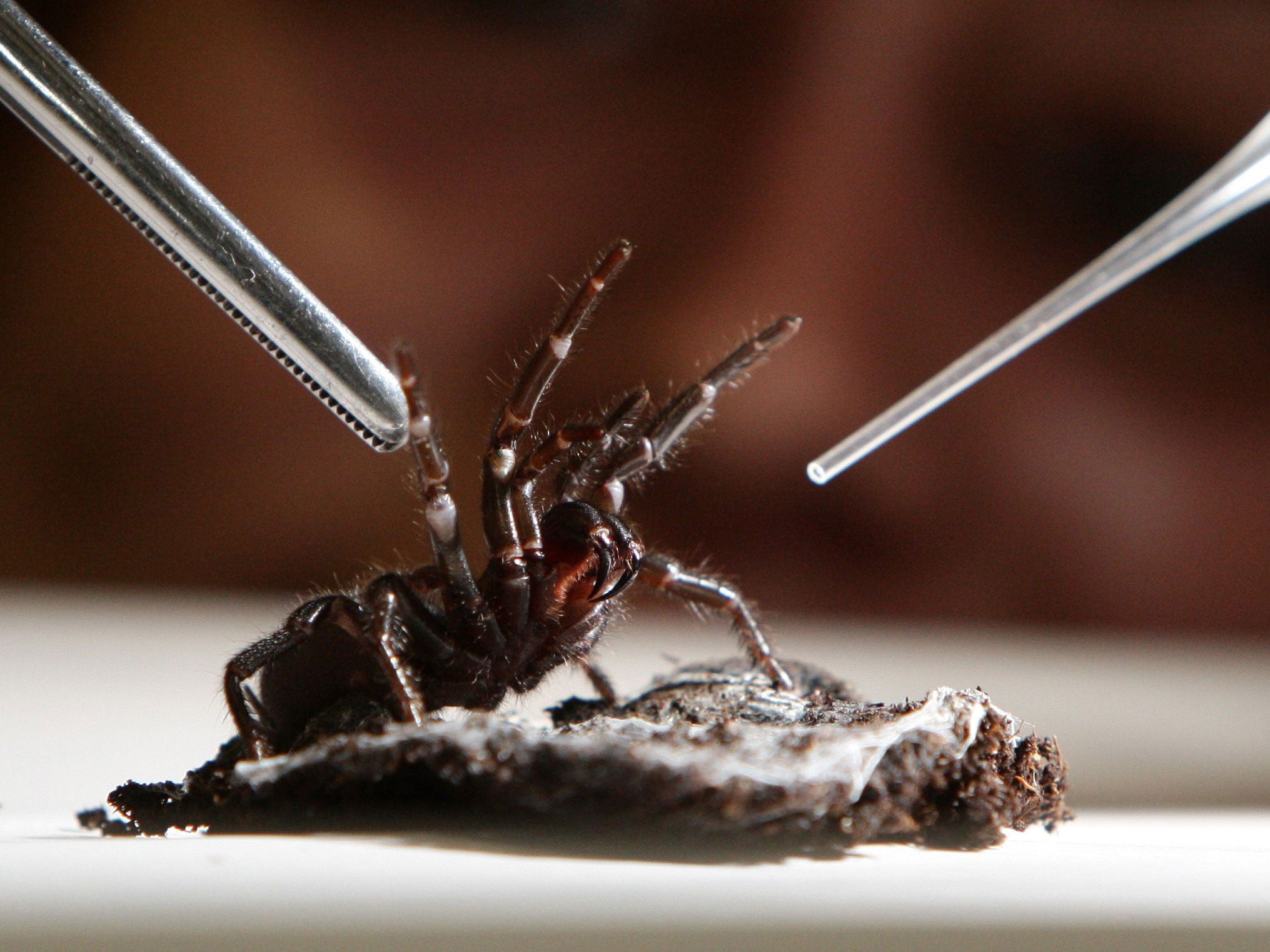Huge deadly funnel-web spider named ‘Big Boy’ to be milked to create anti-venom in Australia
‘Big Boy’ is a Sydney funnel-web spider, the most deadly in Australia

Your support helps us to tell the story
From reproductive rights to climate change to Big Tech, The Independent is on the ground when the story is developing. Whether it's investigating the financials of Elon Musk's pro-Trump PAC or producing our latest documentary, 'The A Word', which shines a light on the American women fighting for reproductive rights, we know how important it is to parse out the facts from the messaging.
At such a critical moment in US history, we need reporters on the ground. Your donation allows us to keep sending journalists to speak to both sides of the story.
The Independent is trusted by Americans across the entire political spectrum. And unlike many other quality news outlets, we choose not to lock Americans out of our reporting and analysis with paywalls. We believe quality journalism should be available to everyone, paid for by those who can afford it.
Your support makes all the difference.A huge funnel-web spider caught in Australia is to be milked for its venom to help create more supplies of the antidote needed to treat bites by the deadly arachnid.
Affectionately named ‘Big Boy’, the Sydney funnel-web spider – the deadliest in Australia – was handed in by a member of the public to be used in Australia’s only venom milking programme.
Measuring a leg span of 10cm, ‘Big Boy’ will now be handled by the Australian Reptile Park, which has issued guidelines to the public on how to safely catch the species and drop them off at designated spots to be used in the programme.
Programme supervisor Billy Collett told the BBC that ‘Big Boy’ is the largest funnel-web spider he had seen.
“There might be one at a museum, but this is the biggest one we’ve had in our venom programme,” he said.
Before the anti-venom was created 35 years ago there had been 13 recorded deaths caused by the spider in New South Wales, but there have been none since 1981, according to the Australian Reptile Park.
Two years ago the park was forced to issue a plea to the public to catch and donate funnel-web spiders to the venom milking programme – were it was safe to do so – due to the programme’s stock running dangerously slow.
The programme sees the spiders milked using a pipette, which sucks out the venom, but in order to create enough anti-venom required the park needs to conduct around 3,000 milkings a year, and need between 200 and 300 spiders to be able to do this.
Join our commenting forum
Join thought-provoking conversations, follow other Independent readers and see their replies
Comments